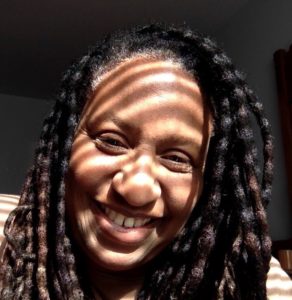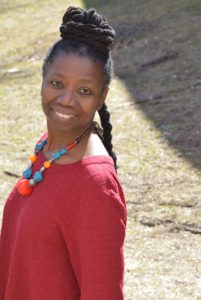Diane Roberts, PhD Candidate, Concordia University
“The Arrivals Legacy Project: Navigating Loss, Reviving Stories of Recovery and Return”
Thursday, October 24, 1:00 - 3:00 p.m.
Dance Annex, 527 Bloor West (Not Accessible – One Staircase)

FB Event: https://www.facebook.com/events/402312504032850/
Registration: Email heevans@yorku.ca
There is no bypassing loss. Loss of language, culture, dance, songs, history, memory, home. For those who remain there is a continual longing for a forgotten past. For those who leave, there exists a sometimes-unspoken longing to return (Césaire 1956). In the context of African Diasporas Studies (Gilroy 1995), as well as in Performance Studies (Roach 1996) and other fields (Literature, memory studies), there is a debate about what practices may enable individuals, families and communities to either re-construct or acknowledge the continuing existence of distinct, inherited cultural values and traditions. Terms such as “embodied memory” (Roach 1996) and “ancestral” memory have been used to refer to those processes by which one may inhabit or embody memories of dead ancestors (Vrettos 1886). By using a post-colonial (Rothberg 2009; Tuwai Smith 2012) approach to the study of The Arrivals Personal Legacy Process – a performance-based process that facilitates the emergence of re-remembered connections with ancestors – my workshop aims to bring to the fore the complexities of association and the politics of resistance (internal and external) that members of African Diasporas and Indigenous peoples living in the Caribbean and Canada go through when faced with the challenge of engaging their ancestral memory by means of performance.
The Arrivals Personal Legacy Process (APLP) is a transformational exploration of ancestry, ceremony and root cultural practices for artists and creators of change founded by Diane Roberts. APLP is what bell hooks would refer to as a creative engagement tool for displaced and migrant artists and communities designed to unearth embodied root cultural practices and creative impulses through ancestral connections (Walcott 1992; Fanon 1961; Tuwai Smith 2012; Simpson 2013).
As a decolonizing process, the APLP enacts an approach to collaborative responsibility that is geared toward particular centres of gravity that are rooted in the body and infused by the spirit. As a result, the process itself demands a level of engagement that contradicts the traditional role of the researcher as knowledge producer by asking the researcher to step into a state of unknowing and to grapple with what is potentially unknowable.
There are stories, mingled in our blood, buried in bones and breath … stories waiting to be told...
Camille Turner, PhD Student, Faculty of Environmental Studies, York University
“Slavery Happened Here: An Afronautic Research Lab”
Thursday, October 24, 3:30 - 6:00 p.m.
Media Commons Theatre, University of Toronto
Robarts Library 3rd floor, 130 St. George St. (Accessible)

FB Event: https://www.facebook.com/events/1254392664749132/
Registration: Email heevans@yorku.ca
Despite the fact that Black people have been present in territories that are now known as Canada for over four centuries, they are often presented as newcomers within Canada’s historiography. This failure of memory is enabled because the history of transatlantic slavery on Canadian soil and its connection to the rest of the colonial world is hidden in the gaps and silences of the archive. The erasure of the roots of the Black presence also erases the roots of ongoing anti-Black violence that stemmed from slavery and continues to affect Black life in the present. Without vital knowledge of the past, anti-Blackness in the Canadian context cannot be understood, reckoned with and expunged. Drawing on Afrofuturist principles of centering Blackness and imagining time as nonlinear and combining media, performance and archival research, Camille Turner created the Afronautic Research Lab. Since its inception in 2016 the lab has traveled across the country gathering local evidence and mobilizing knowledge beyond the academy. The lab’s most recent stop was in Bonavista Newfoundland in August 2019 where it incorporated evidence of 19 slave ships made in the area.
In this workshop Turner will lead an exploration of the Afronautic Research Lab. We will examine the form of the lab, its adaptability and the knowledge it enables.

